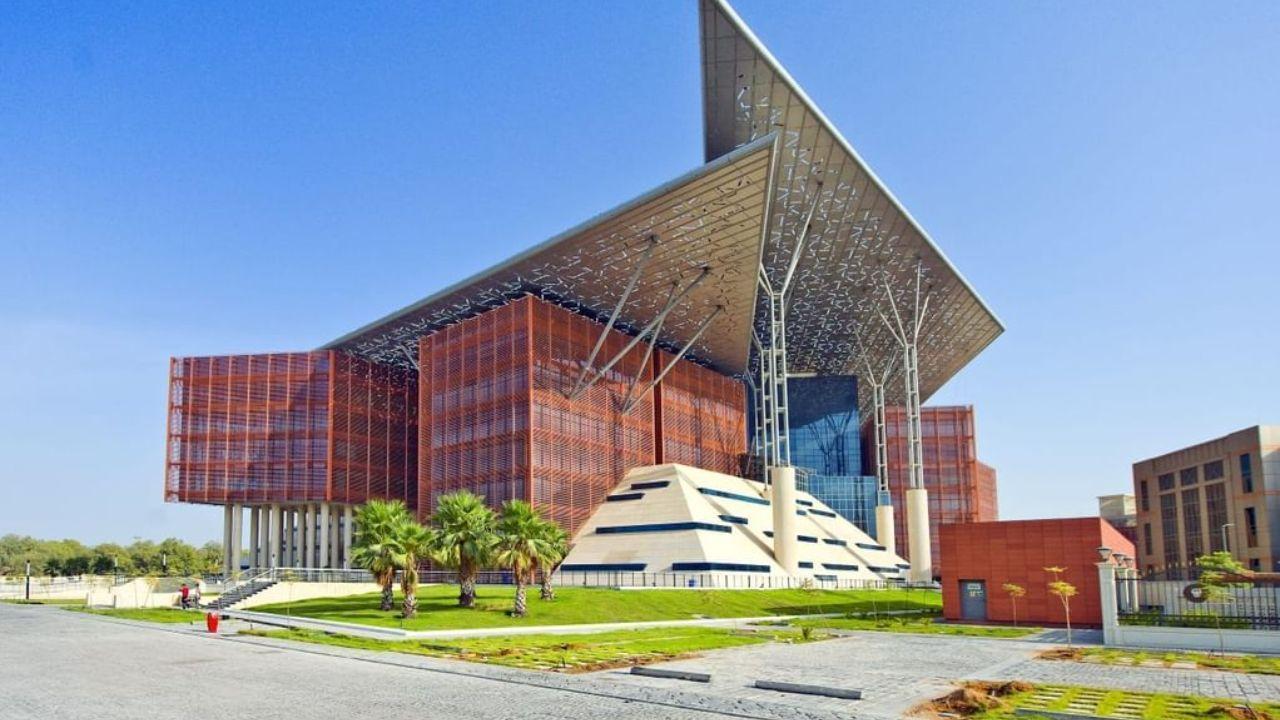
Post by : Mumtaaz Qadiri
The UAE is rapidly transforming its healthcare sector using advanced technology. Hospitals, clinics, and health authorities are adopting new tools to improve patient care, reduce waiting times, and make medical services more efficient.
From artificial intelligence (AI) and robotics to telemedicine and wearable devices, technology is changing how doctors diagnose and treat patients. The government is also supporting digital health initiatives to make healthcare accessible for everyone.
This article explores how technology is revolutionizing healthcare in the UAE and what it means for patients, doctors, and the overall health system.
One of the biggest changes in UAE healthcare is the use of electronic medical records (EMR). These digital files store patient history, test results, and treatment plans. Hospitals and clinics can now share patient information securely, reducing errors and saving time.
With EMRs, doctors can access important data instantly, even if the patient visits another hospital. This system also helps track health trends across the country and plan better healthcare policies.
Telemedicine allows patients to consult doctors through video calls, apps, and online portals. This technology has become especially important during emergencies, reducing the need for hospital visits.
In the UAE, many hospitals now offer virtual consultations for routine check-ups, follow-ups, and even mental health support. Patients can get prescriptions, advice, and guidance without leaving their homes, making healthcare more convenient and safe.
Artificial intelligence (AI) is transforming the way doctors diagnose diseases. AI-powered tools can analyze medical images like X-rays, MRIs, and CT scans faster and with higher accuracy.
For example, AI can detect early signs of cancer, heart disease, or other illnesses, helping doctors provide timely treatment. Hospitals in the UAE are also using AI to predict patient needs, manage resources, and improve emergency care.
Robotic surgery is another exciting development in UAE healthcare. Robots assist surgeons in performing precise operations, reducing the risk of errors and speeding up recovery.
Many hospitals in Dubai and Abu Dhabi now use robotic arms and computer-guided systems for complex surgeries. This technology allows patients to heal faster, experience less pain, and have shorter hospital stays.
Wearable devices like smartwatches, fitness bands, and health monitors are helping people track their health daily. These gadgets measure heart rate, blood pressure, sleep patterns, and physical activity.
In the UAE, healthcare providers are using data from wearable devices to monitor patients remotely, especially those with chronic conditions like diabetes or heart disease. This technology helps prevent complications and allows doctors to adjust treatment in real time.
Technology is also changing how people get medicines. Online pharmacies and mobile apps allow patients to order medications and have them delivered at home.
This service is especially useful for elderly patients, people with mobility issues, and those living in remote areas. It ensures that everyone can access essential medicines quickly and safely.
The UAE government has launched several smart health programs to improve healthcare services. Initiatives like Dubai Health Experience and Abu Dhabi’s remote patient monitoring systems show the country’s commitment to modern healthcare.
These programs focus on integrating technology, AI, and digital tools into hospitals, clinics, and public health systems. The goal is to make healthcare more effective, faster, and patient-friendly.
Technology in healthcare benefits both patients and medical professionals. Patients get faster diagnoses, personalized treatments, and convenient access to doctors. Doctors can work more efficiently, reduce mistakes, and focus on providing better care.
The use of technology also reduces hospital overcrowding, ensures accurate record-keeping, and allows for better coordination between different health facilities.
The UAE continues to invest in health tech innovations. Future developments may include AI-powered hospitals, advanced telemedicine systems, robotic pharmacies, and even virtual reality for medical training.
These advancements will make healthcare more accessible, affordable, and effective. Patients can expect faster treatment, better monitoring, and improved overall health outcomes.
Technology is transforming healthcare in the UAE in amazing ways. From digital records and telemedicine to AI and robotics, the country is leading the way in modern medical services.
By embracing technology, the UAE is not only improving patient care but also setting an example for other countries. With continuous innovation, the future of healthcare in the UAE looks healthier, smarter, and more efficient.
This article is for informational purposes only. GCC News 24 does not provide medical advice or endorse any medical services. Readers should consult qualified healthcare professionals for personal medical concerns.










Why Dussehra Marks the End of Navratri and the Beginning of Festivities
Learn why Dussehra marks the end of Navratri, its cultural importance, and how people celebrate this

Tragic Boat Accident In Nigeria’s Niger River Kills 26 People
At least 26 people died when a boat carrying traders capsized in Nigeria’s Niger River, highlighting

Violent Protests in PoK Leave Eight Civilians Dead
Eight civilians died in Pakistan-occupied Kashmir protests as locals demand rights, with clashes, st

Dodgers Beat Reds 10-5 in Wild Card Series Opener
The Los Angeles Dodgers defeated the Cincinnati Reds 10-5 in Game 1 of the MLB Wild Card Series, pow

Real Madrid Thrash Kairat 5-0 with Mbappe Hat-Trick
Kylian Mbappe scored a stunning hat-trick as Real Madrid beat Champions League newcomers Kairat Alma

Abhishek, Aishwarya Sue YouTube Over AI Misuse in India
Abhishek and Aishwarya Rai Bachchan sue YouTube over AI videos, seeking damages, takedowns, and stro